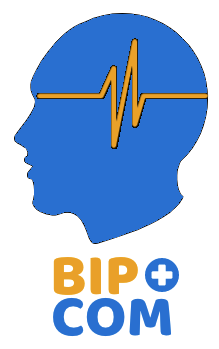


Giovanni de Girolamo is the former Scientific Director and the Head of the Unit of Epidemiological Psychiatry at the IRCCS Istituto Centro San Giovanni di Dio in Brescia, Italy, the leading clinical research center in mental health located in Northern Italy. He is also a Professor of Psychiatry at the Catholic University of Sacred Heart in Milan. From 1988 to 1994, he worked at the Division of Mental Health of WHO in Geneva under the guidance of Norman Sartorius. From 1998 to 2001 he was the coordinator of the National Mental Health Project, based at the Italian N.I.H. in Rome, which involved 27 specific research projects and more than 100 centres throughout Italy. He has set up and directed several large multicentre projects, including PROGRES, PROGRES-Acute, WHO World Mental Health Survey Initiative (Italian site), PREMIA, MILESTONE, VIORMED, EU-VIORMED, INTERPRET-DD project and DIAPASON. His research focuses on psychiatric epidemiology and health services research, schizophrenia, early interventions and forensic psychiatry. He is the co-author of 503 publications, including 41 volumes or monographs, 388 articles (281 indexed in Pubmed), and 76 book chapters. He has an H-index of 87 (Scopus, February 2022).

Elisa Caselani is a clinical psychologist and psychotherapist in training, as well as a researcher affiliated with the IRCCS Centro San Giovanni di Dio Fatebenefratelli Brescia. Her primary focus is on conducting research projects aimed at advancing personalized and efficacious intervention methods for individuals with emotional-relational and affective disorders. Furthermore, She has ventured into the realm of neuroscience and specifically explored the application of functional magnetic resonance imaging (fMRI) to investigate the underlying biological manifestations of psychiatric pathologies, through the implementation of machine learning algorithms to improve the analysis and interpretation of fMRI data.

Marta Magno is a psychologist with a degree in Neuroscience and Neuropsychological Rehabilitation and a psychotherapist in training. As a research assistant at IRCCS Centro San Giovanni di Dio Fatebenefratelli, in Brescia, She works on projects related to psychiatric disorders, such as schizophrenia spectrum disorders and bipolar disorder, and their medical comorbidities, in particular metabolic syndrome. Over the years, She has also specialized in the diagnosis and treatment of eating disorders. She attended a specialization course on the multidisciplinary approach to eating disorders and obesity and She participated in research projects on the cognitive functioning of patients with eating disorders.


Despoina Koukouna is an experienced psychiatrist, beginning her medical journey at the University of Rome “La Sapienza”. This foundational training equipped her with robust expertise in understanding and treating various psychiatric disorders.
Beyond her clinical practice, Koukouna extends her influence as a lecturer at the Psychiatry Specialization School at University of Siena. Here, she imparts her comprehensive knowledge to future psychiatrists, shaping the next generation of mental health professionals.
To supplement her psychiatric proficiency, Koukouna pursued training in Cognitive Behaviour Therapy (CBT), enriching her repertoire of treatment strategies. This specialized training allows her to deliver tailored, evidence-based therapeutic interventions to her patients.
Overall, Despoina Koukouna seamlessly merges her clinical, academic, and teaching roles, contributing significantly to the field of Psychiatry. Her ongoing dedication and expertise continue to enhance mental health understanding and treatment methodologies.

Pietro Carmellini (MD) is a psychiatrist. He is currently pursuing his doctoral studies and serves as a Research Fellow within the Psychiatry Division of the Department of Molecular and Developmental Medicine of Siena University Hospital, leading work packages in EU-granted projects.
After receiving his training in Psychiatry at the Department of mental health of Siena University Hospital, he joined the King’s College’s Institute of Psychiatry, Psychology and Neuroscience. His research interests focus on mood disorders, psychopharmacology, and the role of biomarkers in psychiatry.

Alessandro Cuomo (MD-PhD) is a psychiatrist and psychopharmacologist and serves as a Medical Executive at the University of Siena’s Department of Psychiatry (2020-present). He also holds academic positions as an Assistant Professor of Psychiatry and as a lecturer at the University’s Psychiatry Specialization School since 2021. Cuomo’s expertise is further strengthened by partnerships with King’s College’s Institute of Psychiatry, Psychology & Neuroscience and the Mood Disorders Psychopharmacology Unit at the University of Toronto, Canada, honing his proficiency in mood disorders and psychopharmacology since 2012. An accomplished academic, Cuomo has over 350 publications and has spoken at numerous national and international events. His work in phase 3 and phase 4 clinical trials has significantly contributed to the development of innovative psychiatric treatments (mood, anxiety, psychotic disorders and consultation liaison psychiatry). Alessandro Cuomo’s persistent dedication and impactful contributions continue to shape our understanding and treatment of psychiatric diseases, making him a pivotal figure in the field of psychiatry.
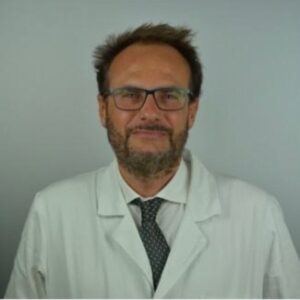
Prof. Paolo Brambilla is a psychiatrist and researcher known for his significant contributions to the field of psychiatry. He has been recognized internationally for his achievements and honored by prestigious foundations. With over 400 published articles, he has established himself as an authority in bipolar disorder and neurosciences. One of Prof. Brambilla’s notable strengths lies in coordinating large-scale projects, and he has served as the Workpackage leader for several EU projects. He has also been successful in securing multiple research grants. In his current positions at the University of Milan and Fondazione IRCCS Ca’ Granda Ospedale Maggiore Policlinico, Prof. Brambilla holds influential roles as a full professor of Psychiatry and the Director of the Department of Mental Health, respectively. He also plays significant roles in various professional associations. Prof. Brambilla’s research interests have recently focused on maternal depression and anxiety, fetal-neonatal brain development trajectories, and infant neurobehavioral outcomes. He has collaborated with other researchers on various projects, exploring topics related to schizophrenia and disease phenotypes.

Francesca Siri is a clinical psychologist specializing in neuropsychology in 2020. During her internship and work activities, she acquired experience in evaluating and treating cognitive functions in neurological and psychiatric disorders. Since 2017 she has collaborated with the Department of Neuroscience and Mental Health of the Policlinico Hospital of Milan as a research psychologist. Her research activity has focused on neuropsychological functioning and cognitive rehabilitation in patients with psychosis and bipolar disorder.

Lorena Di Consoli is a psychologist who graduated in 2019, and since September 2021, she has been working at the Psychiatry Unit of Policlinico Hospital in Milan as a researcher. She is involved in numerous projects concerning adult psychiatric patients with mood disorders, psychosis and personality disorders. She also offers clinical support for diagnostic and neuropsychological assessments in SPDC and in Unit’s Day Hospital. She completed a master in Psychodiagnostics and is continuing her studies by attending the 3rd year of a specialization school in Cognitive-Behavioral Psychotherapy.
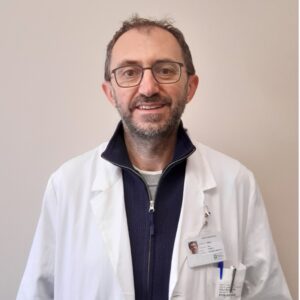
Roberto Poli is a psychiatrist, with 25 years of clinical and research experience.
Currently, He’s the Director of the Mental Health Department and the Director of the Substance Abuse Unit ASST Cremona, which includes the area of Cremona, Casalmaggiore and surroundings. He has a great professional experience in psychiatric rehabilitation, emergency psychiatry and in the substance abuse and behavioural addiction Department. His field of research is carried out in collaboration with Universities and research centres, in the field of psychiatric rehabilitation, psycho-pharmacotherapy and behavioural addiction.He’s also the author or co-author of 80 articles published in international scientific journals and of 8 book chapters and manuals.

Andreas Reif studied medicine at the Julius Maximilian University of Würzburg. He then completed his specialist training as a psychiatrist at the Department for Psychiatry, Psychosomatics, and Psychotherapy. He established a clinical focus on bipolar disorders at the Department of Psychiatry, Psychosomatics, and Psychotherapy at Würzburg University Hospital and became deputy director of the department. Since August 2014, Reif has been head of the Department of Psychiatry, Psychosomatics, and Psychotherapy at Johann Wolfgang Goethe University in Frankfurt am Main. Andreas Reif’s clinical interests primarily include affective disorders – and in particular suicide prevention, treatment-resistant depression, and bipolar disorder. His scientific focus includes the field of translational psychiatry, prevention, and early intervention as well as personalized medicine via the identification of pathophysiological mechanisms.
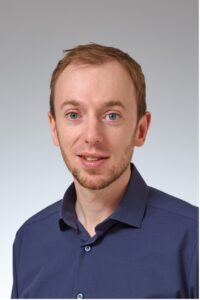
Jonathan Repple is a Professor of Predictive Psychiatry, a Licensed Psychiatrist, and a Managing Senior Physician at the Department of Psychiatry, Psychosomatic Medicine and Psychotherapy of the University Hospital Muenster. In his research, he is interested in affective disorders, especially in neuroimaging, network modeling, neurostimulation, and the interplay of somatic and psychiatric risk factors in the development of affective disorders.

Nene F. Kobayashi studied Medicine at Frankfurt Medical School. After electives in Tokyo and Munich, she graduated in 2021, the year in which is also defended her medical thesis. Since 2022 Dr. Kobayashi is a resident in psychiatry at the Department of Psychiatry, psychosomatic medicine, and Psychotherapy of the University Hospital Frankfurt.

Silke Matura (Ph.D.) is a psychologist, senior clinical scientist and head of the Research group mHealth and lifestyle modifications at the Department of Psychiatry, Psychosomatic Medicine and Psychotherapy of Goethe University Frankfurt am Main. Her current research focuses on the impact of long-term habits (e.g. dietary habits, physical activity) on psychological well-being and the brain. Her research involves Ecological Momentary Assessment (EMA) and a large array of neuroimaging methods (spectroscopic magnetic resonance imaging, quantitative MRI, fMRI, DTI) to study the impact of lifestyle factors on brain metabolism, structure, and function. She is currently leading work packages in two EU-granted projects, investigating insulin multimorbidities and the effect of lifestyle factors on impulsivity and compulsivity.

Henrik Larsson is Professor of epidemiology. The overall objective of his research team’s work on ADHD is to understand how genes and environments influence ADHD across the life span, to map developmental consequences of ADHD and to identify the benefits and risks associated with ADHD treatment interventions. Henrik Larsson’s team use large ADHD cohorts identified from national health registers, the Swedish twin register and clinical cohorts. These datasets contain valid diagnoses of ADHD, prospective measures of environmental risks, high throughput genotyping, longitudinal information on prescribed ADHD medications and assessments of serious medical (psychiatric and somatic problems) and functional (social, educational and occupational) outcomes. Henrik is a faculty member of IMPACT, ECNP, EUNETHYDIS, and the Behavioral Genetic Association

Dr Garcia-Argibay started working at the School of Medical Sciences at Örebro University in 2019. He collaborates closely with Dr Larsson who is currently scientific coordinator of H2020 project TIMESPAN (EU grant # 847776) with a focus on real-world data analyses of ADHD and co-occurring cardiometabolic disease. Dr Garcia-Argibay research focuses on psychiatric and medical conditions using a wide range of methodologies which include register-based and genetic data. He is also the main analyst for the Psychiatric Genomics Consortium (PGC) for ADHD and anxiety Swedish work group performing GWASs. Other areas of his expertise include risk prediction modeling and state-of-the-art deep learning techniques. Dr Garcia-Argibay is involved in several other national and international projects.

Professor in psychiatry at the University of Oslo, Division of Mental Health and Addiction, and attending psychiatrist, Oslo University Hospital, Oslo, Norway, and the Director of Norwegian Centre for Mental Disease Research (NORMENT), one of the largest mental health research groups in Scandinavia. Andreassen did his PhD in psychopharmacology at University of Bergen and his post doc training in neuroscience at Massachusetts General Hospital-Harvard Medical School where he investigated mechanisms of neurodegeneration. He did his psychiatry residency at Oslo University Hospital, and is now attending psychiatrist at their Bipolar Disorder Outpatient Clinic. His research is translational and he applies clinical, neurocognitive, and brain imaging phenotypes and molecular genetics tools to identify causes and underlying pathophysiology of bipolar disorder, and develop multimodal stratification tools. Andreassen builds his research on the Nordic advantages, such as public health care system, large biobanks, health registries and homogenous population, and is currently focusing on gene x environment interplay and development of precision medicine approaches in psychiatry. He is chairing international consortia in bipolar disorder genetics (PGC) and brain imaging (ENIGMA), and coordinates European Bipolar Disorder Network (ECNP) and Horizon2020 project (CoMorMent, RealMENT).

Dr. Djurovic completed his Doctor of Medical Sciences (Dr.Sci.Med., Ph.D.) degree at the University of Zagreb in Croatia and the University of Graz in Austria. He also holds a specialization in Medical Biochemistry and Clinical Laboratory Diagnostics and a Master of Science degree in Biology-Biomedicine from the University of Zagreb. Currently, Dr. Djurovic serves as a Group Leader in the Department of Medical Genetics at Oslo University Hospital Ullevål. He also holds the position of Professor at the Institute of Clinical Medicine, University of Bergen, both in Norway. In these roles, he leads research teams and collaborates with fellow scientists and clinicians to advance our understanding of genetic factors underlying psychiatric disorders. Dr. Djurovic has made notable contributions to the field of psychiatry, particularly in the areas of molecular genetics, functional genomics, and personalized medicine. His research focuses on elucidating the genetic and molecular basis of psychiatric disorders, such as schizophrenia and bipolar disorder, with the goal of developing more targeted and effective treatment strategies.

Linn Rødevand, a clinical psychologist with a PhD in cardiovascular disease risk in severe mental disorders, focusing on the role of shared genetic underpinnings and loneliness. Currently, she is a postdoc at the Norwegian Centre for Mental Disorders Research (NORMENT), University of Oslo, continuing the research on factors underlying the comorbidity of severe mental disorders and cardiovascular disease. This work is part of EU-projects, where she also coordinates Norwegian cohorts with registry and longitudinal mental and cardiometabolic data, enabling the prediction of disease risk and trajectories. Moreover, she performs clinical assessments of patients with bipolar disorders that participate in NORMENT’s research.
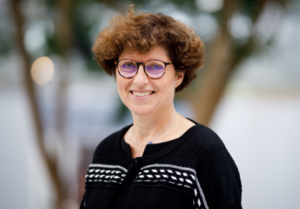
Marion Leboyer, M.D., Ph.D. is Professor of Psychiatry at the University of Paris Est Créteil (UPEC) in France. She is head of the DMU IMPACT (University-affiliated department of Psychiatry and Addictology (Hôpitaux Universitaires Mondor, Assistance-Publique-Hôpitaux de Paris). She also runs the laboratory “Translational NeuroPsychiatry” which is part of Mondor Institute for Biomedical research (IMRB, Inserm U955). Since 2007, she is the executive director of a non-profit foundation, “Fondation FondaMental” created by the French Ministry of Research. Dr. Leboyer has authored or co-authored more than 900 peer-reviewed international publications (H-index = 100) and is part of the highly cited researchers (Clarivate) since 2018. In 2022, she was ranked by Research.com best female scientist award. In December 2021, she received the Inserm Grand Prize. Her research efforts contributed to a better identification of genetic and environmental risk factors associated with major psychiatric disorders towards better understanding of causal mechanisms. In particular, she has contributed to the identification of associations of genetic vulnerability factors, of immune dysfunctions in major mood and psychotic disorders, but also of environmental risk factors as well as brain imaging abnormalities. Dr Leboyer is the principal investigator of several international and national research projects. In particular, since 2022, she is PI of a Program project in precision psychiatry (PEPR ProPSY) funded by the french National Research Agency.

Ophélia Godin is epidemiologist by training, recruited as researcher with a tenure position at Inserm (CRCN) in the Inserm U955 laboratory “Translational NeuroPsychiatry” of Mondor Institute for Biomedical Research (IMRB) lead by Pr Marion Leboyer.
Since 2013, she is in charge of the epidemiologic aspect of the FACE-BD and FACE-SZ cohorts partly funded by PIA2 (Programme d’Investissement Avenir). These cohorts aims at better defining objective clinical and biological criteria for stages and at identifying markers of stratification into homogeneous subgroups of major psychotic patients.
Her research mainly focuses on the prevalence, origin, risk factors and consequences of somatic diseases, particularly metabolic abnormalities, in individuals with psychiatric disorders. Her research contributed to show, for the first time in France the high frequency of metabolic syndrome and Non-Fatty liver disease in individuals with bipolar disorders, schizophrenia and Treatment-Resistant depression. Her research also contributed to identify associated risk factors and consequences of metabolic syndrome (MetS) on the illness progression.
Particularly, she participated to identify immune-inflammatory signatures of MetS in individuals with schizophrenia and explored the potential impact of MetS on psychotic relapse in longitudinal study. She has published over 100 articles in international journals and is a member of the research committee of the Fondation FondaMental (France), of the AFPBN (Association Française de Psychiatrie Biologique et de Neuropsychopharmacologie), and of the “Global Bipolar Cohort”, a collaborative network gathering 10 international cohorts aiming at define and acts priorities in bipolar disorders

Didac Mauricio is Director of the Department of Endocrinology & Nutrition, Hospital de la Santa Creu I Sant Pau in Barcelona, and Professor with the Faculty of Medicine, University of Vic & Central University of Catalonia. He is leading the Endocrinology, Diabetes & Nutrition research group at his current institution. He also belongs to the excellent diabetes research network CIBER of Diabetes and Associated Metabolic Diseases (CIBERDEM), Instituto de Salud Carlos III, in Spain. He has published over 300 peer-reviewed articles (WoS H-index: 48). He has been the principal investigator of multiple research projects funded by national and international agencies.

Dr. Rosa Corcoy, MD, PhD is Director of the Diabetes Unit at Hospital de la Santa Creu i Sant Pau, Associate Professor of Medicine at the Universitat Autònoma de Barcelona and current Treasurer of the European Diabetic Pregnancy Study Group. Among other projects, she has acted as the Local Principal Investigator for DALI (Vitamin D and lifestyle intervention for GDM prevention) and CONCEPTt (Continuous Glucose Monitoring in Women with Type 1 Diabetes in Pregnancy Trial) projects and is the Principal Investigator of the Bioengineering, Biomaterials and Nanomedicine CIBER excellence research network. In 2010, Dr. Corcoy received the Premio Rodríguez Miñón de Investigación Clínica Senior of the Sociedad Española de Diabetes and in 2012 the Jorgen Pedersen Medal of the Diabetic Pregnancy Study Group.

Resmini Eugenia, MD, PhD, Specialist in Endocrinology and Metabolism, Consultant. Degree in Medicine (MD), University of Milan 2000. Specialization in Endocrinology 2005, University of Genova. Doctorate in Medicine (PhD): 2011, University of Genova. Fellow of the European Committee of Sexual Medicine (FECSM): 2012. She has published in the field of pituitary diseases, neuroendocrinology and diabetes, with more than eighty publications in peer-reviewed journals.

I am an endocrinologist and emerging PI currently granted a postdoctoral fellowship “Juan Rodés” from the Spanish Government, after a two-year postdoctoral fellowship in the Neuroendocrine Unit at MGH in Boston. My research is focused on improving our understanding of the mechanisms involved in hypothalamic-pituitary diseases (HPD) and their outcomes. Specifically, I am conducting cross-disciplinary research to disentangle the physiology and pathophysiology of oxytocin in HPD with the ultimate goal of improving their clinical care. I received several Young Investigator Awards and the prestigious International Early Investigator Award of the Endocrine Society (2021) in recognition of my outstanding research.

Eugènia Mato is a research senior of the CIBER of Bioengineering, Biomaterials and Nanomedicine (CIBER-BBN), Instituto de Salud Carlos III, Spain, assigned to the Department of Endocrinology & Nutrition, Research Institute of Hospital Sant Pau in Barcelona and professor of the Department of Biomedicine, Faculty of Medicine, University of Barcelona. She has published over 71 peer-reviewed articles, and she has been participate as an investigator in 23 research projects funded by national and international agencies. She works in the field of prediction and prognostic markers (genetic, proteomic and metabolomic) in thyroid cancer.

Alicia Santos is a Ph.D. and psychologist working as a researcher at Hospital Sant Pau, Barcelona. She has a long experience dealing with clinical research in endocrinology. Furthermore, she is the Project Manager of the European Register of Cushing’s Syndrome (ERCUSYN), a database that currently involves more than 2300 patients.
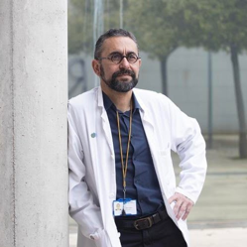
Dr. Narcís Cardoner Álvarez is a seasoned psychiatrist with over 20 years of experience and a PhD from the University of Barcelona. He initially served as a consultant psychiatrist at the University Hospital of Bellvitge, focusing on research in affective and anxiety disorders. In 2015, he joined Parc Taulí University Hospital as the Director of Community Mental Health and coordinator of OSAMCAT. He currently leads the Psychiatry Service at the University Hospital de la Santa Creu i Sant Pau as of April 2022.Professionally, he has authored over 150 peer-reviewed articles and 20 high-impact reviews, positioning him as a leader in psychiatric research. He is an active investigator in key research networks like CIBERSAM and AGAUR. He has also published books and contributed chapters to publications in his field.He has been the president of the Catalan Society of Mental Health and Psychiatry and is an advisory panel member for ECNP since 2020. Dr. Cardoner collaborates globally and is part of consortia like ENIGMA. He engages in industry partnerships and promotes scientific outreach. Academically, he is a full-time professor at the Autonomous University of Barcelona, where he mentors doctoral and master’s students, emphasizing the training of future researchers.

David Almenta Gallego is a specialist in psychiatry who currently works in the acute unit of the Hospital Sant Pau in Barcelona. He completed his specialization at the Hospital de Sant Pau in Barcelona from 2005 to 2009 and has been a family therapist since 2022. Additionally, He holds the position of Associate Professor in the Psychiatric Nursing and Mental Health master’s program. He has a wealth of experience, having worked in various mental health facilities in Catalonia and at a specialized center in Psychogeriatrics. On the research front, He has actively participated in several state-funded projects and boasts numerous publications in high-impact factor journals.

Dr. Josefina Pérez Blanco holds a degree in Medicine and Surgery from the Faculty of Medicine at the University of Santiago de Compostela, awarded in September 1983. She specialized in Psychiatry at the Hospital de la Santa Creu i Sant Pau in Barcelona.
She has been an associate professor of psychiatry at the UAB (Autonomous University of Barcelona) since 2000 and teaches in the postgraduate programs in Geriatrics and Psychiatry at the School of Nursing of the Hospital de Sant Pau.
Her research activities primarily focus on affective disorders, particularly bipolar disorders. She is a member of CIBERSAM’s Group 21 (Biomedical Research Network Center for Mental Health) CB07/09/0010 and a member of the Research Group on Affective Disorders at the Hospital de Sant Pau (SGR2009/179, Generalitat de Catalunya – AGAUR).
She is a member of the Catalan Society of Psychiatry and Mental Health, where she served as president from 2002 to 2006. She is also a member of the Spanish Society of Psychiatry and the Spanish Society of Biological Psychiatry.
In recognition of her professional excellence, Dr. Josefina Pérez Blanco received the “Excellence in Professionalism Award 2013” from the College of Physicians of Barcelona.
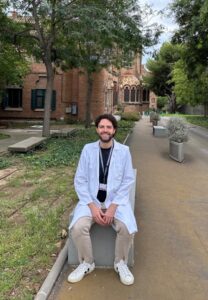
Dr. Víctor de la Peña Arteaga is a dedicated medical doctor and accomplished postdoctoral researcher with a strong focus on mental health, neuroscience, and neuroimaging. He obtained his medical degree from the National Autonomous University of Mexico in 2011, complemented by postgraduate diplomas in pharmacology and adolescents’ health. His academic journey continued with a Master’s degree in Addiction Studies from King’s College London in 2017, followed by a Doctoral degree in Medicine and Translational Research from the University of Barcelona in 2022.
Dr. de la Peña Arteaga’s expertise lies in the intricate relationship between biology and behavior, particularly in the realm of mental health. He possesses a keen understanding of advanced neuroimaging techniques, allowing him to delve into the complexities of brain structure and function in various mental health disorders. His passion for translational research has driven him to bridge the gap between research findings and practical clinical applications, ultimately benefiting patient care.
Throughout his academic and research career, Dr. de la Peña Arteaga has actively participated in international conferences, contributing to the global dialogue on critical mental health topics. He believes in the power of scientific dissemination and has effectively communicated research findings through the presentation of informative posters. His dedication to advancing the field of mental health and his commitment to improving patient outcomes drive his ongoing research endeavors.

Ana Díaz Pérez holds a degree in Medicine and Surgery from the University of Barcelona. She completed her psychiatry specialty at Hospital de Sant Pau in Barcelona, affiliated with the Autonomous University of Barcelona. Additionally, she earned a Master’s degree in Systemic Family Therapy between 1992 and 1996. Since then, she has worked as a clinical psychiatrist at the same hospital, primarily within the acute hospitalization unit, providing care to patients with severe mental disorders. She plays a role in coordinating outpatient Electroconvulsive Therapy and provides services in liaison psychiatry, as well as caring for outpatients. In recent years, she has been a tutor for residents in training within her department. She has also conducted research, focusing on the study of Suicidal Behavior from 1996 to 2008. Subsequently, she has participated in several studies on resistant schizophrenia conducted within her department.

Dr. Narcís Cardoner Álvarez is a seasoned psychiatrist with over 20 years of experience and a PhD from the University of Barcelona. He initially served as a consultant psychiatrist at the University Hospital of Bellvitge, focusing on research in affective and anxiety disorders. In 2015, he joined Parc Taulí University Hospital as the Director of Community Mental Health and coordinator of OSAMCAT. He currently leads the Psychiatry Service at the University Hospital de la Santa Creu i Sant Pau as of April 2022.Professionally, he has authored over 150 peer-reviewed articles and 20 high-impact reviews, positioning him as a leader in psychiatric research. He is an active investigator in key research networks like CIBERSAM and AGAUR. He has also published books and contributed chapters to publications in his field.He has been the president of the Catalan Society of Mental Health and Psychiatry and is an advisory panel member for ECNP since 2020. Dr. Cardoner collaborates globally and is part of consortia like ENIGMA. He engages in industry partnerships and promotes scientific outreach. Academically, he is a full-time professor at the Autonomous University of Barcelona, where he mentors doctoral and master’s students, emphasizing the training of future researchers.
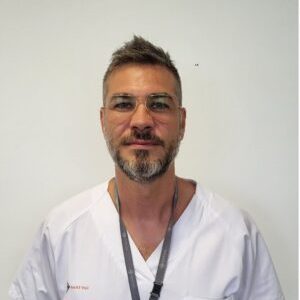
David Almenta Gallego is a specialist in psychiatry who currently works in the acute unit of the Hospital Sant Pau in Barcelona. He completed his specialization at the Hospital de Sant Pau in Barcelona from 2005 to 2009 and has been a family therapist since 2022. Additionally, He holds the position of Associate Professor in the Psychiatric Nursing and Mental Health master’s program. He has a wealth of experience, having worked in various mental health facilities in Catalonia and at a specialized center in Psychogeriatrics. On the research front, He has actively participated in several state-funded projects and boasts numerous publications in high-impact factor journals.

Dr. Josefina Pérez Blanco holds a degree in Medicine and Surgery from the Faculty of Medicine at the University of Santiago de Compostela, awarded in September 1983. She specialized in Psychiatry at the Hospital de la Santa Creu i Sant Pau in Barcelona.
She has been an associate professor of psychiatry at the UAB (Autonomous University of Barcelona) since 2000 and teaches in the postgraduate programs in Geriatrics and Psychiatry at the School of Nursing of the Hospital de Sant Pau.
Her research activities primarily focus on affective disorders, particularly bipolar disorders. She is a member of CIBERSAM’s Group 21 (Biomedical Research Network Center for Mental Health) CB07/09/0010 and a member of the Research Group on Affective Disorders at the Hospital de Sant Pau (SGR2009/179, Generalitat de Catalunya – AGAUR).
She is a member of the Catalan Society of Psychiatry and Mental Health, where she served as president from 2002 to 2006. She is also a member of the Spanish Society of Psychiatry and the Spanish Society of Biological Psychiatry.
In recognition of her professional excellence, Dr. Josefina Pérez Blanco received the “Excellence in Professionalism Award 2013” from the College of Physicians of Barcelona.
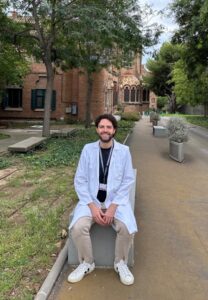
Dr. Víctor de la Peña Arteaga is a dedicated medical doctor and accomplished postdoctoral researcher with a strong focus on mental health, neuroscience, and neuroimaging. He obtained his medical degree from the National Autonomous University of Mexico in 2011, complemented by postgraduate diplomas in pharmacology and adolescents’ health. His academic journey continued with a Master’s degree in Addiction Studies from King’s College London in 2017, followed by a Doctoral degree in Medicine and Translational Research from the University of Barcelona in 2022.
Dr. de la Peña Arteaga’s expertise lies in the intricate relationship between biology and behavior, particularly in the realm of mental health. He possesses a keen understanding of advanced neuroimaging techniques, allowing him to delve into the complexities of brain structure and function in various mental health disorders. His passion for translational research has driven him to bridge the gap between research findings and practical clinical applications, ultimately benefiting patient care.
Throughout his academic and research career, Dr. de la Peña Arteaga has actively participated in international conferences, contributing to the global dialogue on critical mental health topics. He believes in the power of scientific dissemination and has effectively communicated research findings through the presentation of informative posters. His dedication to advancing the field of mental health and his commitment to improving patient outcomes drive his ongoing research endeavors.

Florian Klingler is Member of Board of the German Society for Bipolar Disorder (DGBS) as a representative of informal caregivers. He is heading the working group “Participatory Research”, which members consists of experienced patients, relatives, and researchers. As part of his voluntary activities, he has been carrying out counselling and has been hosting online support groups since 2010. The DGBS is a patient organization and is offering peer-support, promoting self-help, and is actively supporting research projects by facilitating narrow and direct communication between patients, relatives, and professionals, respectively researchers. F. Klingler studied Psychology at Maastricht University and is currently working at Landspítali University Hospital of Iceland.

Michael Bauer, MD, PhD, is Professor of Psychiatry and Chair of the Department of Psychiatry and Psychotherapy at the University Hospital Carl Gustav Carus, Technische Universität Dresden, in Germany, where he is also Physician-in-Chief at the Psychiatric Hospital and Outpatient Clinics. Dr. Bauer was Visiting Professor of Psychiatry at the Neuropsychiatric Research Institute and Hospital at the University of California Los Angeles (1998-2002). He is President of the International Group for the Study of Lithium-Treated Patients (IGSLi), and he chairs the World Federation of Societies of Biological Psychiatry’s Task Force on Treatment Guidelines for Unipolar Depressive Disorders. Dr. Bauer is Editor-in-Chief of the International Journal of Bipolar Disorders, of Pharmacopsychiatry and Editor of Der Nervenarzt. He received several awards including the Anna Monika Prize in 2017 and the AGNP-Prize for Research in Psychopharmacology also in 2017. Dr. Bauer’s research interests include prediction, response, and outcome in psychopharmacology; neurobiology of mood disorders (functional neuroimaging, neuroendocrinology, and genetics); treatment strategies and tactics in mood disorders; and the development of new technologies for longitudinal assessments in psychiatry. He has authored and coauthored more than 500 articles published in peer-reviewed journals or books,mostly in the field of mood disorders.

Philipp Ritter, PD, is a clinician scientist at the University Hospital Carl Gustav Carus and the Technical
University of Dresden. The close, captivating, yet complex relationship between sleep, circadian rhythms and the antecedents, onset, course, comorbidity and symptomatology of bipolar disorder have been at the core of his research for the past years. He has utilized actimetry, polysomnography, pupillography, serial melatonin measurements and epidemiological sleep data to pursue research questions attempting to unravel this interrelationship.

Julia Clemens is a psychological psychotherapist in advanced training and a clinical scientist at the Universitätsklinikum Carl Gustav Carus´ and the , Technischen Universität Dresden´. Her primary research tasks include the detection of early warning signs of bipolar patients through ambulatory long-term assessment (AA) with sensors (e.g. actigraphy) and smartphone apps. With this approach, additional information can be obtained from the patient’s real-life environment in everyday life. AA offers an alternative, cost-effective, individualized and timely option for the detection and treatment of early-warning symptoms in bipolar disorder. It extends beyond standard psychotherapeutic and medical therapy and has the potential to promote a deeper understanding of the development and the course of psychopathology.
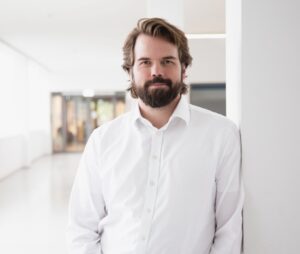
Maximilian Pilhatsch, MD, is Professor of Psychiatry and Psychotherapy at the Faculty of Medicine at TU Dresden. He is also Chief Physician at the academic teaching hospital of the TU Dresden at the Elblandklinikum. He completed his doctorate and habilitation in the research field of affective disorders with the highest honours. His research also focusses on stress and addiction, where he leads several projects funded by the German Research Foundation (DFG). He is also project leader at the German Centre for Child and Adolescent Health.
